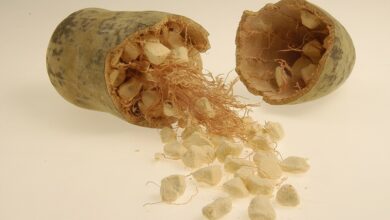Drugs Used to Treat Eczema May Provide Relief for Patients with Intense Itchy Skin Diseases

A groundbreaking study published in JAMA Dermatology reveals that abrocitinib, a drug approved for eczema treatment, significantly alleviates symptoms in patients with severe itchy diseases lacking targeted treatments. Researchers at the University of Maryland School of Medicine (UMSOM) conducted a 12-week study that highlighted the drug’s minimal side effects and its effectiveness in treating prurigo nodularis and chronic pruritus of unknown origin.
Explore the promising findings from a recent study published in JAMA Dermatology, revealing that abrocitinib, a drug approved for eczema, significantly reduces symptoms in patients with intensely itchy diseases such as prurigo nodularis and chronic pruritus of unknown origin. Conducted by the University of Maryland School of Medicine, the 12-week study demonstrated a reduction in itching and pain symptoms by up to 78%, with minimal side effects reported. This breakthrough offers new hope for patients who suffer from severe discomfort and have limited treatment options. Learn about the potential of abrocitinib to transform the management of these debilitating conditions and improve the quality of life for those affected by these persistent itchy diseases.
Key Findings from the Study
Abrocitinib’s Impact on Severe Itchy Diseases
- Prurigo nodularis: Patients experienced a 78% reduction in itching and pain symptoms.
- Chronic Pruritus of Unknown Origin: There was a 54% reduction in symptoms.
- Quality of Life: Participants reported improvements in their overall quality of life and sleep habits.
Minimal Side Effects
- The most common side effect was small acne-like bumps, observed in 10% of patients.
- No serious adverse events were reported.
Understanding Prurigo nodularis and Chronic Pruritus
Prurigo nodularis:
- Affects at least 130,000 Americans.
- Causes extremely itchy and disfiguring bumps, typically on the chest, arms, and legs.
- More prevalent in Black patients, women, and those with depression, diabetes, chronic kidney disease, and HIV.
Chronic Pruritus of Unknown Origin:
- Most common in older adults.
- Involves severe itching lasting more than six weeks.
- Current treatments, such as itch relief ointments and anti-inflammatory drugs like antihistamines and corticosteroids, fail to provide sustained relief.
Insights from Dr. Shawn Kwatra
Dr. Shawn Kwatra, the Joseph W. Burnett Endowed Professor and Chair of Dermatology at UMSOM, emphasized the study’s importance: “Very few treatments exist for prurigo nodularis and chronic pruritus of unknown origin; patients often suffer for years in horrible discomfort, which can lead to anxiety and depression, severely impacting their quality of life.”
Dr. Kwatra’s previous research on altered inflammatory mediators functioning through JAK1 provided the basis for this study. He hopes to advance personalized therapies offering sustainable relief for these debilitating conditions.
Future Implications and Continued Research
“This is not only an encouraging study but also sets the stage for a Phase 3 clinical trial,” said Dr. Mark T. Gladwin, Dean of UMSOM. The findings hold promise for introducing novel treatments to underserved communities disproportionately affected by prurigo nodularis.
Since joining UMSOM, Dr. Kwatra has established the Maryland Itch Center at the University of Maryland Medical Center, where he continues his research.
Study Collaborators and Funding
The study involved faculty from Duke University, Johns Hopkins University, and The George Washington University. Pfizer, Inc., the manufacturer of abrocitinib, funded the study and provided the drug. Dr. Kwatra has previously served as a paid consultant for Pfizer and receives funding from the National Institutes of Health.
About the University of Maryland School of Medicine
Founded in 1807, the University of Maryland School of Medicine is the first public medical school in the United States. It is a rapidly growing, top-tier biomedical research enterprise with 46 academic departments, centers, institutes, and programs. The School of Medicine collaborates closely with the University of Maryland Medical Center and Medical System, serving nearly 2 million patients annually.
With an operating budget exceeding $1.2 billion and nearly $600 million in extramural funding, the School of Medicine ranks highly in research productivity. It is a leader in translational medicine, holding 606 active patents and 52 start-up companies. The institution is globally recognized, with research and treatment facilities in 36 countries.
Conclusion
The study on abrocitinib offers hope for patients with prurigo nodularis and chronic pruritus of unknown origin, potentially revolutionizing treatment options for these underserved conditions. As research progresses, the University of Maryland School of Medicine continues to pave the way for innovative and effective dermatological therapies.



